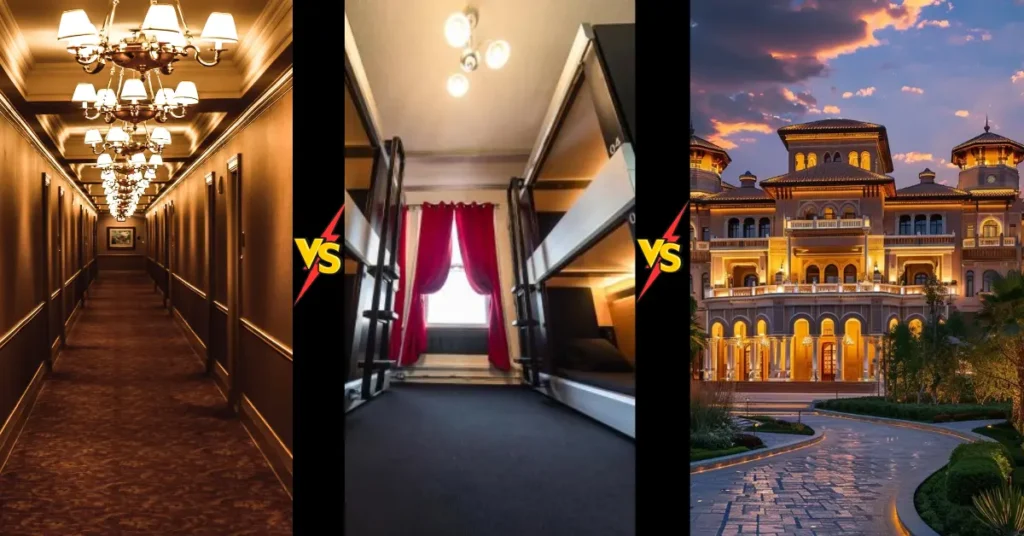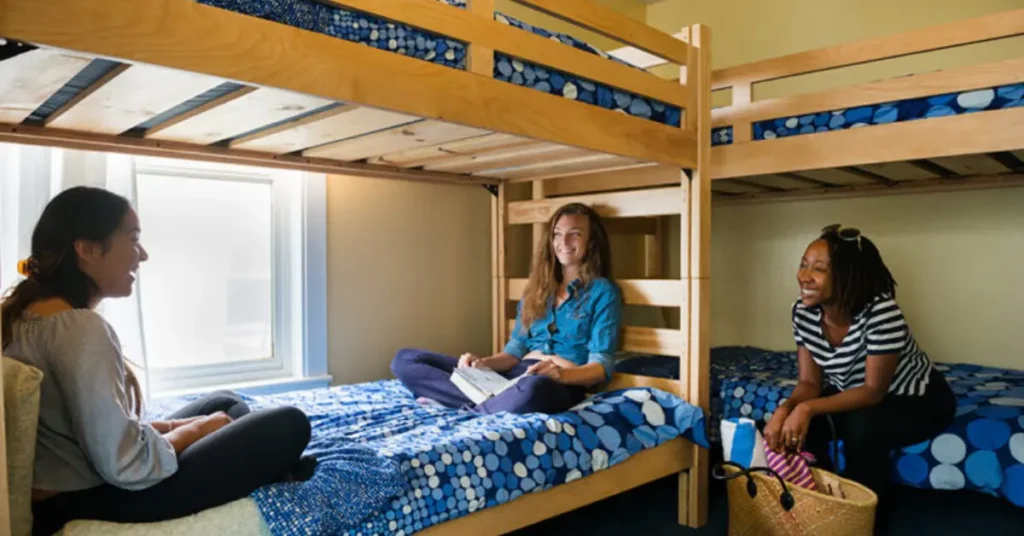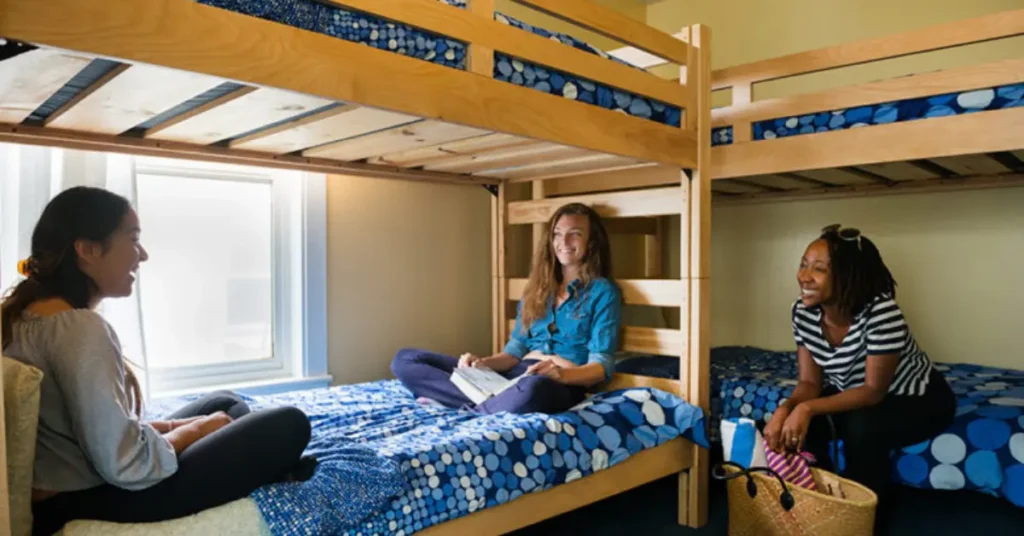When evaluating accommodation options, the comparison between hotels, hostels, and Airbnb offers significant insights into what each has to offer. Hotels typically provide a more luxurious experience with private rooms and a range of amenities, making them ideal for professionals and families seeking comfort. In contrast, hostels serve as an affordable alternative for like-minded travelers, often featuring bunk beds and shared spaces that foster social interactions among guests, from kids to grown men and women looking for budget-friendly options. Meanwhile, Airbnb operates within the sharing economy, allowing individuals to rent everything from entire homes to airbeds, providing unique local experiences that can be a refreshing change from traditional lodging.

While hoteliers focus on the hotel industry with standardized services, Airbnb hosts offer varied accommodations, which may lead to differences in cleanliness and comfort. The evolution of these accommodation types also invites discussions on regulations and their impacts on traditional hotel and hostel models, highlighting the need for future-ready solutions in an ever-evolving travel landscape.

Having traveled extensively, I’ve found that each option serves different purposes for different occasions. For example, during a solo trip to Europe, I enjoyed the vibrant atmosphere of a hostel, where I connected with like-minded travelers, while a recent family vacation led us to choose a hotel for its spaciousness and comfort. However, I often lean toward Airbnb’s when exploring new cities, as they allow me to experience neighborhoods like a local. Each choice reflects the diverse needs of travelers and the evolving nature of modern accommodations.
Hotels vs. Hostels vs. Airbnb: Choosing the Right Accommodation for Your Travel Style
When planning where to stay during my weekend trips or study abroad adventures, the decision between hotels, hostels, and Airbnb’s can feel overwhelming. Growing up, family trips revolved around hotels or VRBO houses, so the idea of using an Airbnb or staying at a hostel never even crossed my mind. However, once I began traveling solo, I quickly realized that hotels can be much pricier, while a budget-friendly Airbnb is a better fit especially when traveling with friends. For example, my trips to Providence were often more affordable in small, cozy Airbnb’s. Though they might lack the luxuries of a hotel, they’re neither better nor worse; just different.

Now that I’m traveling across Europe, I frequently choose hostels as they are often the most popular form of accommodation when searching for a place to stay. They offer a budget-friendly alternative and a sense of community that’s hard to find elsewhere.
Understanding the Hostel Experience
To my knowledge, hostels aren’t very popular in the United States. When I first started traveling, they were something I never considered especially in the U.S., where they aren’t as common. I always thought of hostels as a more European style of accommodation. While the differences between a hostel, Airbnb, and hotel may seem subtle, each option offers unique perks depending on your location and what you’re looking for.

Although a hostel might be the cheapest option, that’s not always the case. In cities like Prague, Vienna, or Berlin, a dorm-style bed in a hostel might not be much cheaper than a hotel. Some hostels are known for being lively “party” hubs for twenty-somethings looking to make friends, while others cater to business travelers who appreciate quieter nights. However, a significant downside is the risk of belongings being stolen, especially in shared dorm-style rooms. The likelihood of encountering a neighbor with sticky fingers is higher in a hostel than in a private room at an Airbnb or hotel, so it’s essential to keep your valuables close.
The Luxe Life of Hotels
For some travelers, the allure of staying in a luxurious hotel is undeniable. Enjoying the comfort of a front desk system where you can easily address any issues with your room or take advantage of various perks is completely fair. While hostels may lack some luxuries like a minifridge, they still provide essentials like a continental breakfast and a front desk service. The main difference is that in a hostel, I usually have to put my own sheets on the bed, which isn’t necessary in a hotel.

As a young traveler, I’ve found that I often don’t need the extra luxuries that a hotel provides. Even Airbnb’s can feel a bit lonelier compared to the vibrant social spaces typically found in hostels. Personally, I prefer the chance to meet new people in the communal areas of a hostel, which is something that hotels or Airbnb’s often lack.
Evaluating Costs: A Balancing Act
When considering accommodation prices, it’s clear that factors like the price tag are heavily dependent on the time of year. Weekend stays at hotels, hostel rooms, and Airbnb can be notably more expensive than weekday rates. If you’re traveling during low seasons, typically between September and May, you can often save money.

Of course, each option comes with additional fees Airbnb often charge extra for more guests, while some hostels charge for things like towels or renting a lock. Don’t forget that hotels add tax to the final bill, so it’s crucial to take all these fees into consideration when selecting the right accommodation for your travel.
Choosing the Right Option for Your Group Size
When comparing prices, the size of your travel group matters. I’ve often traveled with friends, making hostels more affordable since we can split the private room rate among at least four people. In contrast, Airbnb typically charges extra based on the number of guests, and sharing a bed with a friend can be uncomfortable. That’s why I usually recommend Airbnb for smaller groups, such as duos or trios.

Having traveled with both large and small groups, I’ve found that for intimate trips, Airbnb work best, while hostels are perfect for groups seeking affordability and social experiences.
Finding Last-Minute Deals
When it comes to snagging last-minute deals, utilizing apps like Booking or Hotel Tonight is a great option for those looking to stay in a hotel. Whether you prefer the comfort of freshly made sheets or are more of an adventurous traveler exploring different avenues, these apps can help you find fantastic choices. Personally, navigating this digital landscape has allowed for spontaneous travel, enriching my experiences considerably.
Variety in Travel Accommodations

Ultimately, there’s no one-size-fits-all solution for choosing the best accommodation for every traveler. It’s only through experience that you can truly understand what works best for you. As a frequent traveler who has tried both Airbnb and hotels, I’ve learned to value stepping out of my comfort zone. Exploring hostels became an essential part of my travel journey, allowing me to compare the pros and cons of each type of accommodation. From shared dorms to private rooms, every stay adds to my wealth of travel experience, and I encourage others to embrace the variety that travel offers.
Conclusion
The choice between hotels, hostels, and Airbnb depends on your travel style, budget, and desired experience. Each offers unique benefits—social vibes of hostels, hotel comfort, or Airbnb privacy. Explore different options to enrich your journey and discover what suits you best.

